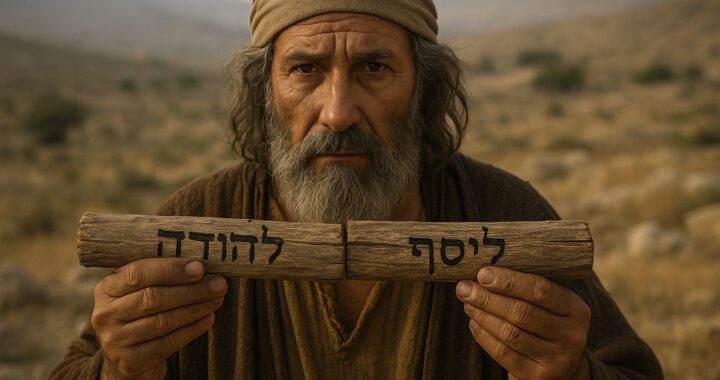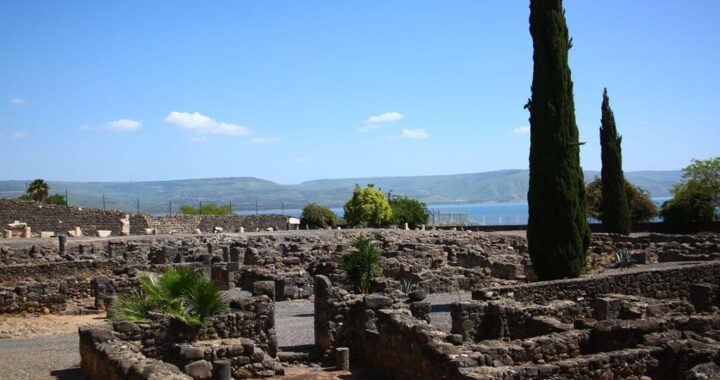When the Lord Jesus Christ commanded His disciples to pray, “Thy Kingdom come. Thy will be done, on earth as it is in heaven.” (Matt. 6:19), they understood basically what kind of a Kingdom he was referring to. It was not the Church, for that body of believers, composed of Jews and Gentiles together without distinction, was explained for the first time through Paul and the other apostles after the Day of Pentecost (e.g., Ephesians 3:1–10). Instead, it was the Kingdom prophesied throughout the centuries of Old Testament history.
This rather obvious fact has been very difficult for the average Christian to believe. We have been told so often that the Church is the Kingdom that we easily assume that the Church has replaced Israel forever as God’s people. I am deeply grateful to God that this is not true, for if He can break His unconditional covenant promises to utterly unworthy Israel (cf. Gen. 22:15–18), then He can break His unconditional promises to the utterly unworthy Church (cf. Phil. 1:6)! We praise Him now, and shall praise Him forever, because “the gifts and calling of God are irrevocable” (Rom. 11:20).
In one sense, believers today are already, judicially (de jure), in Christ’s Kingdom (cf. Colossians 1:13), just as we are already seated with Him “in the heavenlies” (Ephesians 2:16). But actually (de facto), we still await the day when He and His Kingdom will appear on the earth. In other words, the Kingdom is not yet here; it is still future.1
Though the Church has been “grafted into” God’s program at the present time (Romans 11:16–18), ethnic Israel will be re-instated into God’s program in the future. The Kingdom has not yet arrived. The Lord Jesus Christ is now at the right hand of the Father, but He is not yet seated upon the throne of David (Psalm 110:1; Luke 1:32; Hebrews 10:12,13) in Jerusalem. When His glorious Kingdom finally comes to the earth, in answer to the prayers of His people, then not only redeemed and glorified Israelites, but also the glorified Church under Christ her Head and Bridegroom will have significant functions to perform.
For one thousand years, the church—with glorified Old Testament saints and Israelite martyrs of the Beast—will reign with Him over the earth (Revelation 20:4). Even the theologically and spiritually weak Corinthian church will exercise that function in the Millennium: “Do you not know that the saints will judge the world? And if the world is judged by you, are you not competent to constitute the smallest law courts?” (1 Corinthians 6:2). Doubtless their regal and judicial position will be relatively low, for the Judgment Seat of Christ will bring to light all the hidden things of darkness and will determine the level of honor and privilege each saint will occupy during the Kingdom (1 Corinthians 3:11–15; 4:5). Their eschatalogical ignorance was so profound that they actually viewed themselves—as opposed to the true apostles—to be above reproach in their regal lordship! Paul, with a touch of irony, told them: “You have become kings without us; and I would indeed that you had become kings so that we also might reign with you” (1 Corinthians 4:8)!
Yes, unbelievable though it may seem, all born again Christians (men, women, and children) will function as kings under Christ during the coming Kingdom age. Some have insisted that “unworthy” believers will be excluded from the wedding banquet, will be excluded from millennial kingship, and will experience a temporary “weeping and gnashing of teeth” following the Judgment Seat of Christ at the beginning of the Millennium.2 But if this is true, then the body of Christ, the True Church, will be drastically divided. Such a view reminds one of “the partial rapture” concept, whereby only “worthy” Christians are raptured before the Tribulation. But who among us is truly “worthy” of redemption, rapture, glorification, and reigning with Christ in the coming Kingdom? If worthiness is the qualification, then there will be no rapture at all, nor will any Christian ever reign with Him.
Today, angels (both righteous and wicked) exercise enormous governmental powers over the world of mankind, under God (cf. Daniel 10; 1 John 5:19). But in the Kingdom Age, Satan and demons will have no access to man (except for “a short time” at the end of the Millennium—Revelation 20:3). Righteous angels will presumably enter into a well-deserved “retirement program” for those thousand years, for “he did not subject to angels the world to come,” but rather to human beings (Hebrews 2:5–8)!
Not only will we be “kings” but we will also serve as “Priests of God and of Christ” (Revelation 20:4). We will never be Levitical/Aaronic/Zadokian priests, for they (1) will be physical descendants of Zadok, David’s faithful high priest; (2) will escape martyrdom during the Seventieth Week; and thus (3) will have non-glorified Israelites and Gentiles (Ezekiel 44:15–31). The prophet Jeremiah (of the non-Zadokian line of Abiathar priests in Anathoth) wrote: “the Levitical priests shall never lack a man before Me to offer burnt offerings, and to prepare sacrifices continually” (33:18). Significantly, God will identify, save, and seal 12,000 Levites by the middle of the Seventieth Week (Revelation 7:7), even though Jews today have long lost their tribal identities (since A.D. 70).
In all the intricate descriptions of Zadokian priestly functions in the millennial Temple in Ezekiel 43–46, there is not one word about a high priest! Ezekiel must have been fully aware of the prophecy of Psalm 110:4, that Messiah would be a Melchizedeldan high priest; and Zechariah must have known this too (cf. Zechariah 6:13). Under this absolutely unique High Priest, we will doubtless intercede for non-glorified saints on the earth, even as Levitical priests interceded for Israelites in the pre-Pentecost era. This is a deep mystery and a marvel!
The precise function of the Church during the Kingdom Age is not revealed to us. We do know that we will participate in the great inaugural banquet (Matt. 8:11; 26:29; Luke 13:28; 22:16,18). How amazed the survivors of the Tribulation will be, to behold Christ’s glorious bride, the Church! Beyond that, it seems reasonable to envision our Lord appearing in Jerusalem at least at the annual Feast of Tabernacles (Ezekiel 45:25; Zechariah 14:16), which always anticipated God’s dwelling with His people. And surely the Bride will be with Him, for He promised us that “where I am, there you may be also” (John 14:3). All we can say, in the light of such Kingdom promises, is, “Amen, Come, Lord Jesus” (Revelation 22:20)!
Works Cited- Cf. Alva J. McClain, The Greatness of the Kingdom (Winona Lake, IN: BMH Books, 1974), 432–41; and Stanley D. Toussaint, “Israel and the Church of a Traditional Dispensationalist,” Chapter 6 in Herbert W. Bateman IV, ed., Three Central Issues in Contemporary Dispensationalism (Grand Rapids: Kregel Publishers, 1999), 227–52.[↩]
- Cf. Joseph Dillow, Reign of the Servant Kings (Miami Springs, FL: Schoettle Publishing Co.), 1992, 350ff. For a thorough critique of this book, contact George W. Zeller, Middletown Bible Church, 349 East St., Middletown, CT 06457. Phone: (860) 346-0907.[↩]

Dr. John C. Whitcomb
Dr. John C. Whitcomb (Ph.D., Grace Theological Seminary) was a renowned theologian, Bible teacher, and author, best known for his pioneering work in young-earth creationism alongside Dr. Henry Morris in The Genesis Flood.As a respected professor at Grace Theological Seminary for nearly four decades, Dr. Whitcomb taught Old Testament and theology, influencing generations of pastors, missionaries, and Christian leaders. He was a prolific writer, contributing to numerous theological and creationist works, and his ministry extended globally through lectures and conferences.



